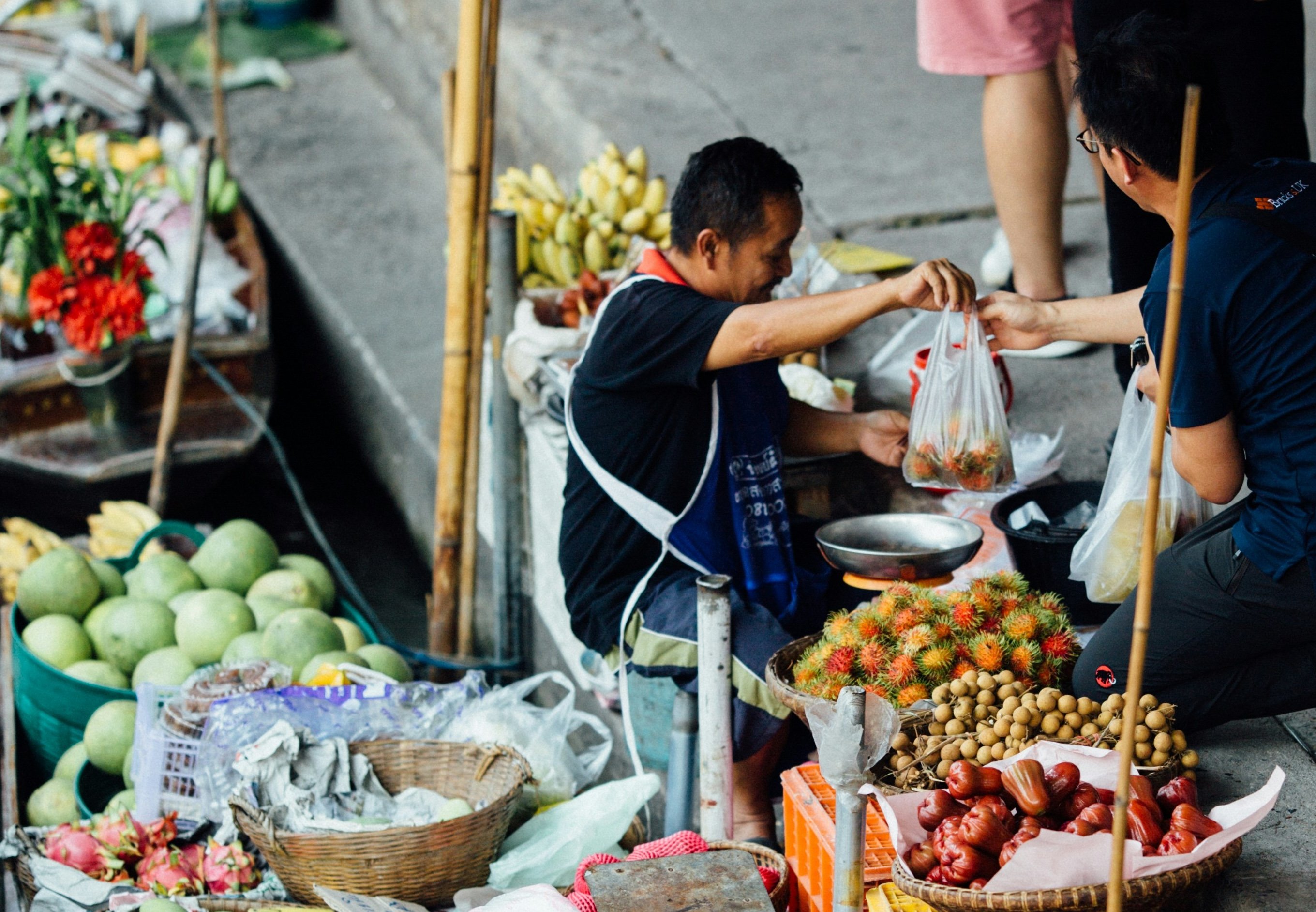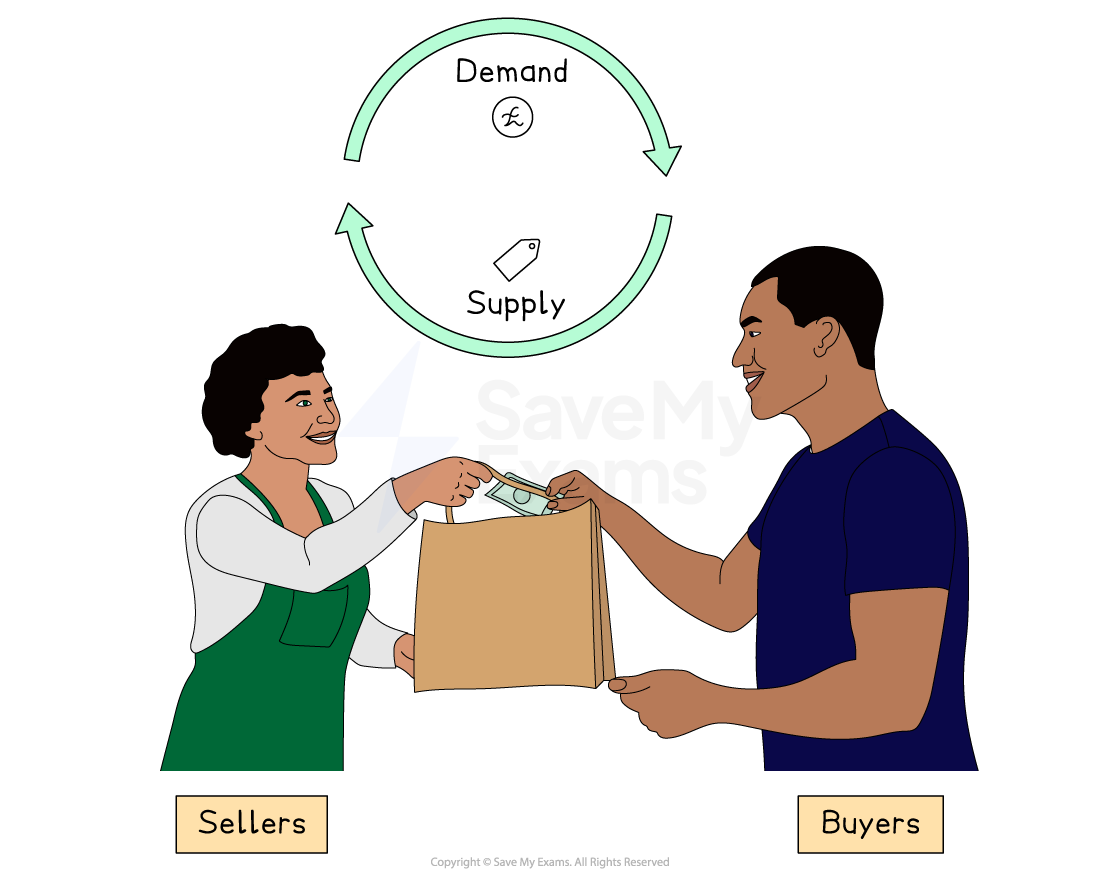Syllabus Edition
First teaching 2025
First exams 2027
How Markets Work (Cambridge (CIE) IGCSE Economics): Revision Note
Exam code: 0455 & 0987
Definition of a market
A market is any place or process that brings buyers and sellers together to exchange goods and services
This exchange can happen in a physical location (such as a food market in Jakarta) or through a virtual platform (such as Alibaba or Amazon)

Examiner Tips and Tricks
In economics, a market does not always refer to a building or shop – it includes any system where buyers and sellers can meet
Examples of markets
A product market is one where buyers and sellers meet exchange a physical good
A factor market is one where buyers and sellers meet to exchange factors of production
Type of market | Description | Example |
|---|---|---|
Physical retail market |
|
|
Online market |
|
|
Commodity market |
|
|
Labour market |
|
|
Foreign exchange market |
|
|
Stock market |
|
|
Roles of buyers and sellers
In any market, both buyers and sellers play essential roles
In an efficient market, sellers respond to what buyers want, and buyers choose between competing sellers
This interaction helps determine prices and quantities

Buyers
Also known as consumers or demanders
Their choices and preferences determine demand for goods and services
They help to set prices by signalling how much they are willing to pay
For example: A buyer in Mexico City searching for the best price on mobile phones influences how firms set prices to compete
Sellers
Also known as producers or suppliers
They aim to supply goods or services in order to make a profit
They decide what to produce, how much and at what price based on costs and expected demand
For example: A coconut farmer in the Philippines choosing whether to sell to local markets or export to Singapore
Examiner Tips and Tricks
When answering short questions on markets, be sure to explain both sides of a market. Buyers create demand. Sellers provide supply. The interaction between the two leads to price and output decisions

Unlock more, it's free!
Was this revision note helpful?
